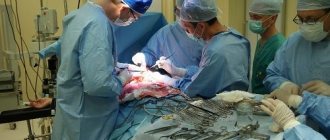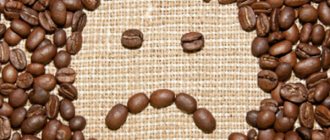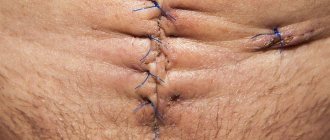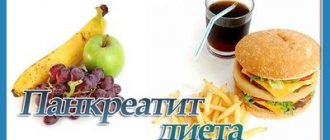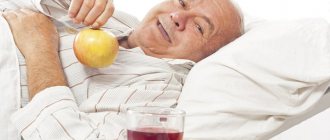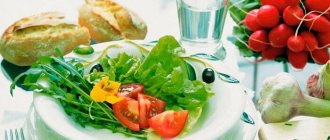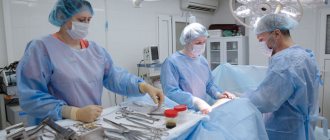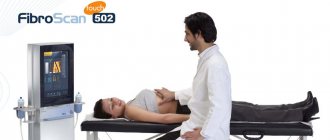Diet recommendations
It is worth remembering that the disease more often appears in people suffering from pancreatitis and who do not adhere to the diet prescribed by their doctor. If there are disturbances in the functioning of the pancreas, it becomes difficult for the body to digest food. This applies even to light foods. Therefore, it is so important to follow all doctor’s recommendations regarding diet.
And although the treatment of this disease involves surgery, this does not mean that you can ignore other doctor’s recommendations.
A few days before the operation, the patient is strictly forbidden to eat food. And it is during this period, as statistics show, that many succumb to the temptation to secretly have a little snack from the doctor. Such behavior will have very serious consequences. After all, restrictions are introduced with the aim of causing the pancreas to stop producing certain enzymes. It is these enzymes that destroy the nerve endings, tissues and blood vessels of the organ that has been affected by the disease. The patient is also prohibited from drinking. In the preoperative period, normal functioning of the body is maintained by administering intravenous solutions. The solutions used contain all the necessary nutrients (fats, glucose, amino acids).
After the operation, the patient’s nutrition is completely controlled by the doctor. In the first few days, the patient cannot eat or drink water on his own. The vital functions of the body are maintained in the same way that was used before the operation. And only on the 5th day the patient is allowed to start drinking liquid. This can be not only ordinary water, but also a rosehip decoction. You can drink about 4 glasses per day.
During the first days after surgery, the patient's condition is carefully monitored by medical professionals. And if the patient is gradually recovering and no complications are identified, he is prescribed the Pevzner diet. Following a diet for pancreatic necrosis of the pancreas involves complete exclusion of fatty foods from the diet. A limited diet of foods for pancreatitis will help the body normalize its functioning faster. The diet recommended by the doctor must be followed for 20-30 days. In this case, everything depends on the decision of the attending physician. In the future, if the patient’s well-being significantly improves, the diet can be gradually expanded and other products added to it. When adding a new product to the diet, you should carefully monitor how the patient’s well-being changes. If a person experiences discomfort or severe pain after consuming a certain product, they should immediately inform a specialist.
Reviews and results
Therapeutic nutrition after removal of the pancreas requires careful adherence and avoidance of gross dietary violations. According to the reviews of the overwhelming number of patients, adherence to therapeutic nutrition makes it possible to provide the body with all food nutrients and maintain gastrointestinal tract functions in a satisfactory state. Negative reviews emphasize the need to follow a diet for life and adapt to individual nutrition.
- “... Delivered to the hospital by ambulance, diagnosis: hemorrhagic sterile widespread pancreatic necrosis, pancreatogenic peritonitis. They operated on him immediately. The operation was difficult, I was in intensive care for almost a week, then I was transferred to the department. During this entire period I did not eat on my own. Solutions and drugs were injected directly into a vein, and then transferred to special nutritional mixtures. Now I have started to eat on my own, but little by little, the diet is very strict. Relatives were told that they needed to buy a steamer and learn how to cook diet dishes, since they would have to be on a diet for the rest of their lives”;
- “... I am 45 years old, three years ago a part (body and tail) of the pancreas was removed. I spent almost 4 months in the hospital until all the drains were removed. Now at home, disability group II, on a strict diet, no stress. The threat of diabetes still remains. I take all the enzymes prescribed to me. I independently studied all the principles of nutrition during pancreatic resection, diet options, allowed/prohibited foods. I bought a nutritionist’s reference book and studied the specifics of preparing dietary dishes, as well as a high-quality steamer, because I understand that a strict diet and enzyme replacement therapy are my destiny for the rest of my life”;
Products during the rehabilitation period
As was written above, during the days of rehabilitation the patient should strictly adhere to the diet provided for in the appropriate diet. All dishes should contain a reduced amount of salt and fat. The diet consists of exclusively low-calorie foods. The diet is also changing. Food is consumed in small fractional portions 6 times a day. Dishes are prepared exclusively by steaming. Fried food is prohibited!
Important. It must be remembered that immediately before cooking, all products should be thoroughly chopped (you can do this by hand or using a blender). This will help the pancreas work faster.
During the diet, the patient is prohibited from drinking alcoholic beverages and doing hard physical work. To achieve the fastest possible restoration of normal functioning of the body, you should strictly follow all the basic principles of nutrition during the rehabilitation period.
- For diseases of the pancreas, the diet may include fruits, but preference should be given to soft varieties of pears and apples, limiting the consumption of other fruits as much as possible.
- Butter can be gradually introduced into the diet. But it must be remembered that you are allowed to eat only 10 grams of oil per day.
- When purchasing dairy products, you must give preference to products with the lowest fat content.
- In case of pancreatic necrosis, eggs are served exclusively in the form of a steamed omelet.
- From baked goods you can eat crackers, cookies and hard bread.
- Lean meats (as well as lean fish) are allowed in limited quantities.
- For drinks, decoctions of medicinal herbs, unsweetened juices and teas are recommended.
The first courses of the postoperative diet include vegetables and chicken. It is preferable to replace chicken meat with lean beef. Porridge is a suitable side dish for the main dish. For a variety of nutrition when following a diet for pancreatic necrosis, you can introduce desserts into the diet. They are prepared from fruits. It is extremely important to remember that patients suffering from this disease often join the ranks of diabetics.
Important. To avoid this, you should strictly follow the doctor’s recommendations before and after surgery.
Types of iron operations
Types of operations on the gland:
- necrectomy - getting rid of dead tissue;
- organ resection: partial removal;
- complete removal;
- drainage of accumulated pus.
If pancreatitis is infected (pancreatic necrosis), necrectomy, open laparotomy and drainage are indicated. Very often, patients are advised to seek repeated surgical treatment after a certain time. This is because dead tissue must be removed each time.
For pancreatitis, laparoscopy is not used.
For purulent abscesses, opening and drainage are used. Operations are carried out in the following ways:
- open method;
- drainage using laparoscopy;
- internal drainage, which involves removing the abscess through the back wall of the stomach.
For false cysts, the following techniques are indicated:
- external drainage through the skin;
- cyst removal;
- internal drainage;
- excision of the gland.
Organ resection is used for tumor processes. Most cancerous tumors are inoperable, but if it is still possible to save a person’s life, then such operations can be performed. With malignant tumors, doctors cannot make a prognosis for future life.
Products prohibited for consumption
When prescribing a diet to a patient, doctors always hand him a list of foods that will be prohibited from being eaten for some time. This list includes:
- alcohol and caffeinated drinks;
- milk soups;
- sweets;
- seasonings;
- broths prepared using fish, meat, mushrooms;
- firm varieties of vegetables, fruits;
- smoked meats and sausages;
- canned food;
- dairy products with high fat content;
- raw vegetables;
- pearl barley, wheat, corn porridge;
- soft breads;
- salo;
- bananas, grapes, dates, figs.
Please note that all cooked dishes should be consumed warm. Cold and hot food are also prohibited! It will irritate the gastrointestinal tract and this will negatively affect the speed of recovery. It is unacceptable to use a lot of salt when cooking. The daily dose of salt is only 2 grams. Remember that you should adhere to this diet until all signs of the disease disappear. Gradually, the diet will expand, and sticking to the diet will become easier. However, this will be possible only with positive dynamics.
Sometimes it happens that even patients who conscientiously adhere to the diet and follow all the doctor’s instructions develop unpleasant symptoms. These symptoms may include:
- abdominal pain;
- diarrhea;
- nausea;
- involuntary defecation.
This happens if the disease was in an advanced stage. In this case, doctors prescribe a course of treatment using enzyme preparations. The above unpleasant symptoms are a sign that the pancreas is unable to independently produce certain enzymes. And that is why this supplement is prescribed, which supplies the body with the necessary nutrients.
And although the need to resort to enzyme preparations arises quite often, this does not negate the fact that patients who followed a diet got rid of the unpleasant consequences of the disease much faster. And therefore, for a quick recovery, it is extremely important not to neglect the doctor’s recommendations and strictly follow all diet instructions.
Who needs
Surgical intervention on the largest gland, which produces digestive enzymes and hormones for the body's metabolic processes, is possible after long-term conservative treatment, which did not give a positive result. Or in cases where drug therapy is not possible. The patient is brought to the operating table due to congenital defects, injuries, organ fistulas, or extremely advanced stages of glandular diseases. Surgery will significantly improve the patient's quality of life.
Acute and chronic pancreatitis
Surgical treatment is vital for acute pancreatitis, when the process of death of pancreatic tissue has begun or cysts have formed. Often during such operations, surgeons have to simultaneously remove stones or even the entire gallbladder.
In case of complex chronic pancreatitis, drug treatment does not help. Stones, fistulas, narrowing of the ducts, and inflammation of the head of the gland can form. In this case, doctors prescribe the patient a resection of the head of the pancreas using the Frey method. Only in this way will the patient’s pain go away and the progression of diabetes mellitus will slow down.
False cyst
It often occurs after acute inflammation. Looks like a sac-like protrusion. The process of its development can last for many years. Patients complain of severe pain and nausea. It is called false because its wall does not consist of mucous tissue. The only way to get rid of it is surgery. The method of surgical intervention depends on the location of the cyst. If it is possible to get it, then drainage and gastroscopy are used. In this case, the abdominal cavity is not opened during its removal.
Cancer
A malignant tumor in the largest gland of the body always grows and develops rapidly. Its processes can affect neighboring organs and tissues, disrupting their functioning. Before metastases appear, the cancer must be removed. This will give a person a chance to live. In case of malignant neoplasms, the duration and outcome of surgical intervention are difficult to predict even for the most highly qualified surgeons. The duration of the operation will be determined by the location and size of the tumor.
